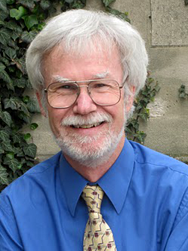We all know mentoring relationships involve a dialogue between a mentor and mentee and that the mentee should “drive” the relationship and communicate needs.
Or do we?
Mentoring relationships have greater value and are more effective not only when the mentor is adept at giving advice, but also when the mentee is prepared to guide the mentor. This is a powerful skill called “mentoring up” that can help you get the most out of a mentoring relationship.
In this interactive session, guest speaker Dr. Richard McGee will introduce a conceptual model of effective mentoring through recognition and mastery of core attributes of effective mentoring relationships. In particular, it will introduce how to use these key attributes to also manage your own relationships with mentors – Mentoring Up. Participants will have the opportunity to complete exercises and analyze cases that set the stage for additional self-paced or workshop-enabled skill building.
Date: December 8th
Time: 11:30 AM – 1:00 PM
Location: Building 446 Auditorium (on the back end of the APS)
Lunch will be served. Please confirm your attendance through the RSVP link.
In preparation for this session, peruse the mentoring toolkits and Beyond Mentoring resources on the National Postdoctoral Association Website. To gain access to Beyond Mentoring, establish a FREE affiliate membership using your Argonne email address.
About the Speaker:
 Dr. McGee is Associate Dean for Faculty Recruitment and Professional Development Associate Professor of Medical Education, Northwestern University Feinberg School of Medicine. Dr. McGee has over 30 years of experience as a scientist, professor and leader in developing programs to enhance the professional development of early career scientists. He also leads the Collaborative Learning and Integrated Mentoring in the Biosciences (CLIMB) program at Northwestern, which was established to “create a diverse community of young scientists from Northwestern’s five PhD life sciences programs.” CLIMB aims to assist early career scientists and students in their professional development so that they may become more effective at communicating, collaborating and leading productive research careers. These groups utilize a variety of mentoring approaches, especially peer-to-peer mentoring and structured group mentoring.
Dr. McGee is Associate Dean for Faculty Recruitment and Professional Development Associate Professor of Medical Education, Northwestern University Feinberg School of Medicine. Dr. McGee has over 30 years of experience as a scientist, professor and leader in developing programs to enhance the professional development of early career scientists. He also leads the Collaborative Learning and Integrated Mentoring in the Biosciences (CLIMB) program at Northwestern, which was established to “create a diverse community of young scientists from Northwestern’s five PhD life sciences programs.” CLIMB aims to assist early career scientists and students in their professional development so that they may become more effective at communicating, collaborating and leading productive research careers. These groups utilize a variety of mentoring approaches, especially peer-to-peer mentoring and structured group mentoring.

